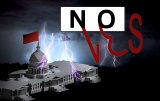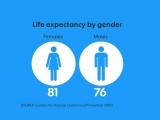PERSONAL FINANCIAL PLANNING PART 2:
MISERABLE MILLIONAIRES
GEORGE WILSON ADAMS CPA MBA
January 3, 2022

Money not only doesn't buy happiness, it can also bring misery.
A Counter-Intuitive Truth
While everyone has heard the phrase “money doesn’t buy happiness” most people aspire to achieving some degree of financial wealth. It is a commonly accepted belief that millionaires have ‘made it’ and are all set. This is inaccurate and in this article I will explain why.
True Stories of Miserable Millionaires
(1) The famous pop singer Michael Jackson was (on paper) a true multi-millionaire. But he mismanaged his finances so badly and ruined his credit so irreparably that he was unable to buy a cell phone in his own name. (See the recent biography of Jackson written by two of his former security guards, Whitfield and Beard “Remember the Time: Protecting Michael Jackson in His Final Days.”)
(2) A recent study of 35,000 Florida lottery winners by economists from the University of Kentucky, University of Pittsburgh, and Vanderbilt University proved that they went bankrupt at about double the rate of the general public.
(3) According to an 11/13/2007 article in the British publication The Telegraph by Helen Kirwan-Taylor, the rich tend to suffer from a psychological condition called Wealth Fatigue Syndrome, which leads to depression and discontent regardless of their degree of wealth. The rich can become addicted to spending on luxury goods while diminishing returns set in. This produces a bottomless pit where satiety never occurs. The satisfaction of buying a 100-foot yacht is negated by the annoyance of seeing a richer friend with a 200-foot yacht.
Don’t Bite Off More Than You Can Chew
Another self-destructive tendency common among wealthy business owners is to indulge in spending sprees where they acquire more and more businesses and investments. But there is a limit to how much any individual can manage. This limit is called the effective span of control.
Rare and exceptional individuals like Steve Jobs or Howard Hughes could effectively manage vast business empires and keep tabs on a billion details. These people are the infrequent exception. A typical business owner is wise to limit himself or herself to one or a few businesses where personal management and direct oversight are possible.
Absentee owners who don’t personally oversee their businesses are exposing themselves to losses and disaster. You might hire great managers but unless you make them part owners of your business they will never care about it to the same degree as you.
Income Is More Important Than Assets
You might have millions in the bank, but most likely these savings will NOT generate millions in income. Depending on the nature of the investment a 5% rate of return on invested capital is exceptional today. The major mistake some millionaires make is to treat assets as recurring. Generally, they are not. If assets are invested wisely they will generate recurring income each year. Accordingly, spending must be limited not by assets (perhaps a large number) but instead by after-tax net income (almost always a much smaller number). The relevant analogy here is an apple orchard. If you own an apple orchard and take good care of the trees they will produce fruit each fall. The trees are assets and their fruit is income. If you live off the fruit of the orchard all will be well. If, instead, you start cutting down apple trees, selling them for wood, and using the proceeds to finance recurring costs then sooner or later you will destroy your apple orchard and your wealth.
The Exponential Growth of ‘Family’ and ‘Friends’
Known millionaires tend to attract very large crowds of very distant ‘family’ and very friendly ‘friends.’ Wealth without wisdom is a short-lived thing, and its memory may become a long-term regret. Generosity practiced as a virtue will endure. Generosity practiced as a means of self-gratification will not.
Here is another relevant analogy: Should you feed pigeons? Many towns and cities prohibit pigeon feeding because it disrupts the natural ecological balance. If this prohibition was ended and pigeons were fed without restraint the laws of population science prove that their numbers would grow exponentially. Sooner rather than later the pigeon population would exhaust the food supply. Then, there would be a catastrophic population crash and Nature would restore balance. The lesson is clear: be prudent in choosing which pigeons to feed, how much and when.
Mere money is not enough to be truly rich. You must know how to use wealth wisely in order to avoid being abused by it. Wealth is a powerful and dangerous tool: more people suffer from its burdens than enjoy its benefits.
The Bank is the Boss
Many wealthy individuals accumulate excessive debt which enslaves them to banks. Banks will cross-collateralize everything these people own: all of their assets may back up a huge bank loan. Every year borrowers must provide personal financial statements and copies of tax returns to their bankers. Will the banker be pleased with the latest financial reports? Maybe and maybe not. Will the banker renew a crucial line of credit? Maybe and maybe not. Millionaires may be playing a very high- stakes game where they can lose everything if anything major goes wrong.
Thinking About Money Makes People Unhappy
An 8/19/2010 article in Scientific American by R. Douglass Fields cites scientific research that proves thinking about money makes people unhappy, and diminishes their capacity to enjoy what they have. One of the greatest fears of the wealthy is the loss of their wealth. One extreme reaction to this fear is to become a miser and deliberately choose not to enjoy any of one’s riches. This is the pathological case where fear ironically makes the rich miser live in poverty. The best practice for everyone to follow is to manage money and spending issues on a periodic, pre-scheduled basis. Treat the work of managing finances like a job. Report for this work at a regularly appointed time, do the work well, and then ‘punch out’, walk-away, and defer further consideration of financial issues until the next regularly scheduled time. If you don't control money, money will control you.
Stupidity is the most expensive thing in the entire world. Even the rich can’t afford it in the long-run.
Photo Acknowledgements and Credits: Business Man in Chair by ©fuzzbones | Bigstock.com / Money Stacks by ©Alex Kalina | Bigstock.com / Money Bundle by ©Alex Kalina | Bigstock.com / Gold Coin Stack by ©Yuri Samsonov | Bigstock.com / Background Room by ©silvae | Bigstock.com / City Skyline by ©Salvador Drusin | Flickr.com / Composition & Modifications by Shawn Hill | VASTmicro
George Adams
Certified Public Accountant Master of Business Administration
Tel: (207) 989-2700 E-Mail: GeorgeAdams@IntelligenceForRent.com
450 South Main Street: The HQ of IQ
Brewer, Maine 04412-2339
©2015 Copyright George Adams CPA MBA. All Rights Reserved.





































































